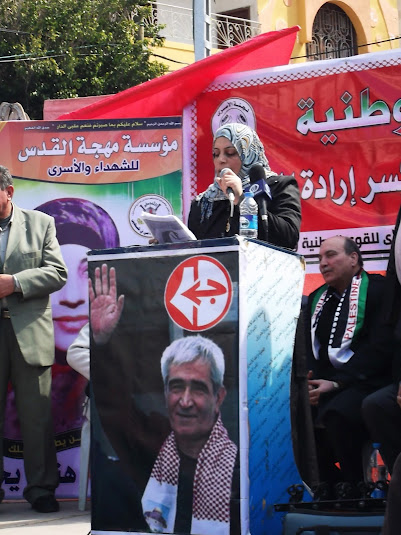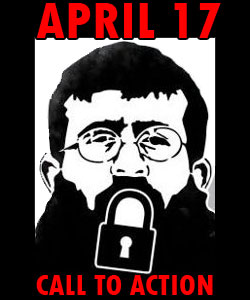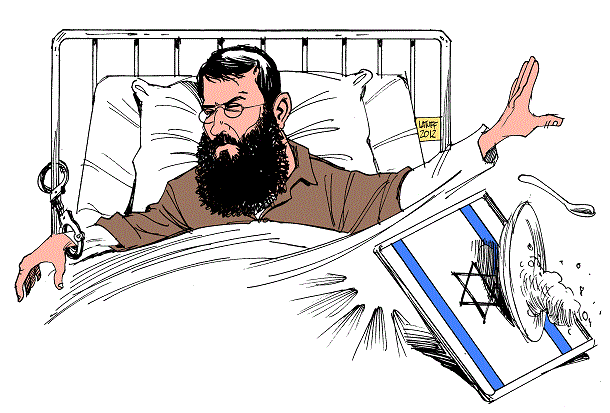Tag: Prisoner Rights
-

Red flags over Gaza: Palestinian leftists rally for Hana Shalabi
by Joe Catron 5 March 2012 | Mondoweiss Hundreds of Palestinians, mainly from the Popular Front for the Liberation of Palestine (PFLP), the Palestinian People’s Party (PPP), the Democratic Front for the Liberation of Palestine (DFLP), and other leftist factions, rallied for administrative detainee Hana Shalabi, now on her 19th day of an open hunger…
-

The world must heed Khader Adnan’s call: Make Palestinian Political Prisoners’ Day, 17 April 2012, a day of international action
21 February 2012 | Samidoun Organizational endorsements are welcome for this statement. Please click here or email april17@palestinianprisoners.org to endorse. “I hereby assert that I am confronting the occupiers not for my own sake as an individual, but for the sake of thousands of prisoners who are being deprived of their simplest human rights while the world and international…
-

Despite the announcement of a deal limiting Khader Adnan’s detention, Addameer reiterates its urgent concern for his health
21 February 2012 | Addameer *At approximately 7:50 PM local time, it was confirmed by Ran Cohen, Executive Director of Physicans for Human Rights-Israel, that Khader Adnan has ended his hunger strike. Khader Adnan’s hearing at the Israeli High Court was cancelled today, 21 February 2012, only minutes before the hearing was to take…
